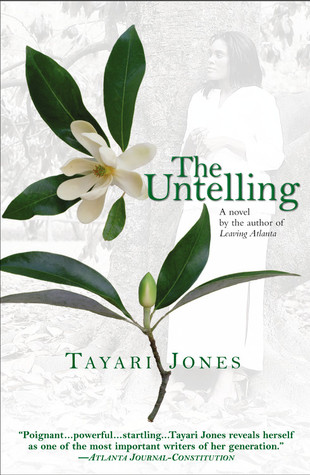Over and over, in Tayari Jones’s darkly comic and vividly heartbreaking novel The Untelling, the main character’s mother asks with inherent disapproval, “Is this what Dr. King died for?”
Atlanta is the novel’s setting, and the memories of Dr. Martin Luther King are everywhere—as street signs, as physical markers, and as a heavy presence of expectation for Aria, the narrator, whose real name is Ariadne, and whose mother has very specific designs for all three of her girls. “Her gifts to the three of us were lush, extravagant, roomy names. Names that fit us like oversized coats, trimmed in seed pearls, gold braid, and the hides of baby seals. My father had wanted us to have family names, with at least one of us girls named after his mother, Lula. My mother, who indulged my father in many things, could not give him this. Why, she wondered, would someone in this day and age give a child a name that was so Mississippi? ‘That is not what Dr. King died for.’”
Ariadne’s life, and her family’s very existence, is fragmented like a broken windshield when her father’s burgundy Buick crashes into a hundred-year-old magnolia tree. Ariadne’s mother, clutching baby sister Genevieve in the front seat, thinks she has saved her. But she hasn’t. Older sister Hermione climbs unharmed from the wreck, while her father, trapped behind the steering wheel, bleeding internally, asks nine-year-old Ariadne to stay with him. But Ariadne, in her childhood coldness and fear, cannot. “My sweet Daddy who gave me two-dollar bills for every A on my report card. To the only man who had ever loved me I said, ‘I’m not listening. I can’t hear you.’”
Left to their own descent into lower middle-class existence, Aria, her sister Hermione, and their mother live with hate and guilt carried like grocery bags soldered onto their forearms. Her mother works at the Institute for The Blind. Hermione marries her father’s best friend and leaves the house at seventeen. And Aria attends Spelman, but doesn’t meet a Morehouse man like her father.
By her adulthood, the only other man to have loved her is Dwayne, a locksmith, and though they are not truly in love, not yet, Aria believes she is pregnant, and Dwayne asks her to marry him in response and obligation which turns to actual love. But Aria, having been raised with her mother’s anger and regret and borderline insanity, believes she isn’t worthy...
You have reached your article limit
Sign up for a digital subscription and continue reading all new issues, plus our entire archives, for just $1.50/month.
Already a subscriber? Sign in





